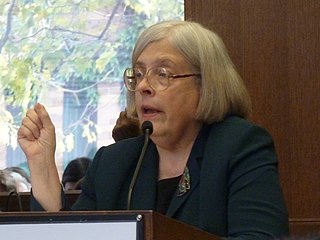Top 395 Mortgage Quotes & Sayings - Page 7
Explore popular Mortgage quotes.
Last updated on November 13, 2024.
For many people, the mortgages they took out before 2008 are so high that they would be better off walking away from their houses. That is called "jingle mail," returning the keys to the bank and saying, "You can have the house. I can buy the house next door that's just like this for 20% less, so I'm going to save money and switch." That's what someone like Donald Trump or a real estate investor would do. But the banks are trying to convince the mortgage debtors, the homeowners, not to act in their own self-interest.
Get out of debt. In a world of stagnant incomes and rising core expenses like mortgage and health care costs, that's a lot easier said than done. The middle class is under enormous pressure. But families can stop the bleeding by reducing their reliance on debt wherever they can. They can also start fighting back by taking a hard look at whom they do business with and rethinking whether they want tricks-and-traps banks to hold their money. They can also demand that public officials take the side of families over the side of banks.
I think you can imagine everyone has ankle weights on, or technology, and there's a reason that people aren't floating around. But I also liked this idea that in this world, people forgot they can swim. The modern world weighs you down, there's always emails to check, you've gotta go to your job and pay your mortgage. You're not really thinking, "Oh, yeah, I can swim around." BoJack discovering it is a big deal, and kind of fun.
Most of these charges that people pay are economically unnecessary. There's no real cost behind them. There's no real value behind them. So, they're what the classical economist called empty pricing. Prices with no real cost value. What they called rent and fictitious capital. Capital claims on junk mortgage borrowers. The pretense is that all these debts can be paid but it's all fictitious, because everybody knows - at least on Wall Street everybody knows - that many debts can't be paid.
Politics is a damn expensive business. I had one hell of a time trying to raise money as a candidate. I had to put a second mortgage on our house to get that campaign started, and I ended up spending over $300,000 to get elected. I believe that public financing of federal election campaigns is the only thing that will insure good candidates and save the two-party system. It is the most degrading thing in the world to go out with your hat in your hand and beg for money, but that's what you have to do if you haven't got your own resources.
You know what higher interest rates mean. To you it means a higher mortgage payment, a higher car payment, a higher credit card payment. To our economy, it means business people will not borrow as much money, invest as much money, create as many new jobs, create as much wealth, raise as many raises.
Sometimes markets err big time. Markets erred when they gave America Online the currency to buy Time Warner. They erred when they bet against George Soros and for the British pound. And they are erring right now by continuing to float along as if the most significant credit bubble history has ever seen does not exist. Opportunities are rare, and large opportunities on which one can put nearly unlimited capital to work at tremendous potential returns are even more rare. Selectively shorting the most problematic mortgage-backed securities in history today amounts to just such an opportunity.
We can't suddenly quit a job and then race to find a form of art that will pay off before the next mortgage payment is due. Creating art is a habit, one that we practice daily or hourly until we get good at it … Art isn’t about the rush of victory that comes from being picked. Nor does it involve compliance. Art in the post-industrial age is a lifelong habit, a stepwise process that incrementally allows us to create more art.
Unless we are holding ourselves accountable day in, day out, not just when there's a crisis for folks who have power and influence and can hire lobbyists, but for the nurse, the teacher, the police officer, who, frankly, at the end of each month, they've got a little financial crisis going on. They're having to take out extra debt just to make their mortgage payments. We haven't been paying attention to them. And if you look at our tax policies in America, it's a classic example.
We need to remake and reinvent our housing system so that it supports the flexibility and mobility of our economic system broadly. Home-ownership is rewarded by the federal tax code, which made great sense when that piece of the American Dream, and all the consumption that came with it, was essential to rebuilding the economy. These days, however, it feels like a huge penalty to people who want to travel light within the new mobile economy without a mortgage to hold them back.
President Lyndon Johnson's administration was known for his War on Poverty. President Obama's will become notable for his War on Prosperity. We're speaking, of course, of Obama's plans to hike income taxes on the most wealthy 2 or 3 percent of the nation. He's not just raising the top rate to 39.6 percent; he's also disallowing about one-third of top earner's deductions, whether for state and local taxes, charitable contributions or mortgage interest. This is an effective hike in their taxes by an average of about 20 percent.
Unfortunately, throughout the housing crisis we've seen innocent homeowners who have been victims of shady mortgage lenders and unscrupulous individuals who have used a down market to line their own pockets at the expense of others. This bill is designed to send a message by revising our laws to ensure criminals are brought to justice and that law enforcement has the tools to uncover these fraudulent schemes and go after the bad actors. Criminals should be put on notice that ripping off homeowners and taxpayers won't be tolerated.
Already, new forms of short-term and long-term rental housing are popping up in some metro areas. You can take on a house or apartment for a few months or even a year or two in developments that are striving to provide critical elements of community - schools, healthcare, social and cultural institutions - even for people who are living there only temporarily. People invested in a home, mortgage, or community are less likely to move to more economically vibrant locales. That kind of entrenchment is going to be an impediment to the coming spatial fix.
If I get married I get a tax break, if I have a kid I get a tax break, if I get a mortgage I get a tax break. I don't have any kids and I drive a hybrid, I think I should get a tax break. I'm trying to pay off my apartment so I have something tangible. I actually figured out if I paid off my place my reward would be that I would pay an extra four grand a year in taxes.
Why do Americans find government so baffling and irritating-even though many of us depend on public programs for a secure retirement, an affordable mortgage, or a college loan? In this timely and important book, political scientist Suzanne Mettler explains how the United States has come to rely on hidden, indirect policies that privilege special interests but puzzle regular citizens. American democracy can do better, and she shows how. Politicians and the public alike have much to learn from her brilliant and engaging analysis.
Whenever destroyers appear among men, they start by destroying money, for money is men's protection and the base of a moral existence. Destroyers seize gold and leave to its owners a counterfeit pile of paper. This kills all objective standards and delivers men into the arbitrary power of an arbitrary setter of values. Gold was an objective value, an equivalent of wealth produced. Paper is a mortgage on wealth that does not exist, backed by a gun aimed at those who are expected to produce it.
When I was a Senator from New York, I represented and worked with so many talented principled people who made their living in finance. But even thought I represented them and did all I could to make sure they continued to prosper, I called for closing the carried interest loophole and addressing skyrocketing CEO pay. I also was calling in '06, '07 for doing something about the mortgage crisis, because I saw every day from Wall Street literally to main streets across New York how a well-functioning financial system is essential.
Now, suppose that a homeowner puts down only 3% of their own money or 3.5% for the FHA. That means if prices go down by only 3%, the house will be in negative equity and it would pay the homeowner just to walk away and say, "The house now is worth less than the mortgage I owe. I think I'm just going to move out and buy a cheaper house." So it's very risky when you have only a 3% or 3.5% equity for the loan. The bank really isn't left with much cushion as collateral.
So, what people are actually left with to spend is maybe 25 to 30% of their income on goods and services, after paying taxes and after paying the FIRE sector (Finance, Insurance, Real Estate). Whether it's housing insurance or mortgage insurance. So there's an idea of distracting people. Don't think of your condition. Think of how the overall economy is doing. But don't think of the economy as an overall unit. Think of the stock market as the economy. Think of the rich people as the economy. Look at the yachts that are made. Somebody's living a lot better. Couldn't it be you?
I'm not playing up to pretend, I don't live above my means. In my song "96 Cris" I say, "...My bills too low for me to fall off." Honestly, if I never did anything again with music, because I put out my own music, I could pay my bills, forever. I can pay my mortgage off my old music. Of course, you probably wouldn't see me in my Lamborghini but, do you really need a Lambo? That's really what you have to ask yourself.
Barack Obama is telling the banking industry what it can and can't charge and what profit he will accept and what level of profit he won't accept. Bill Clinton and Jimmy Carter came up with this scheme that resulted in the subprime mortgage crisis. They said it was unfair that poor and minority people didn't have houses, so we're basically gonna give 'em houses. How are we gonna do that? We're going to make the banks loan them money, knowing full well they can't pay it back.
Let us avoid debt as we would avoid a plague...Let every head of every household see to it that he has on hand enough food and clothing, and, where possible, fuel also, for at least a year ahead...Let every head of household aim to own his own home, free from mortgage. Let us again clothe ourselves with these proved and sterling virtues-honesty, truthfulness, chastity, sobriety, temperance, industry, and thrift; let us discard all covetousness and greed.
People change, mature, and develop their values, attitudes, and preferences as a function of age. It is actually a strategy deployed by many organizations. The idea is that once Millennials grow up -get a mortgage, family- they will start acting like us and sharing our values. Personally, I would not make that bet. Even if it were to happen, Millennials are putting off seven or more years what other generations have done. Waiting for Millennials to "grow up" is risky when it comes to knowledge transfer, talent development, and competitive advantage.
If you really think that houses prices are going to go up next year and the year after, you feel if I don't buy it this year, I'm going to have to buy it next year. [...] And when somebody makes it very easy for you to do it by saying you don't really have to put up my money, you can lie about your income a little, or we'll give you 100 percent mortgage, you're going to do it, because everybody that's done it has been proven right. You have what they call social tools, and, you know, you're going to feel like an idiot if you didn't do it, because the house cost more.
There are times when a market such as housing, transportation or the stock or mortgage market keep rising and people with capital want to join in this growth. Soon the markets become overheated, partly because of the abundance of investment money and speculation. This is when the government should raise interest rates and increase the cost of borrowed money. Governments are shy about doing this because it could cause the very recession. Yet this is the best time to do this so that the inevitable recession never reaches the magnitude of the recent Great Recession.
[The U.S. Treasury] can borrow basically unlimited amounts. They can stay there for years and years. These assets will be worth more money over time. So when Merrill Lynch sells a bunch of mortgage-related assets at 22 cents on the dollar like they did a month or so ago, the buyer goes - is going to make money, and he's going to make a lot more money if it happens to be an institution like the U.S. government which has very, very cheap borrowing costs.
Virtually all student debt in the US is now held by the federal government. It would therefore be a relatively simple matter to forgive some, if not all of it. This would enable young people to transition much more easily into creating their own households and families. At the same time, if the government is going to enact a major program of student debt forgiveness, it should be at least equally committed to relieving the heavy mortgage debt burdens still carried by tens of millions of non-affluent households in the aftermath of the 2007-09 financial crash and Great Recession.
It's about food. It's about your home. It's about your life. The government is worried about all of the above. All I'm saying is you should be worried they're worried. Here's why: They're telling you that you can't take care of yourself. You can't be trusted with what you put in your mouth or what you sign on the mortgage dotted line. So they'll tell you what to put in your mouth and they'll save you from what you signed on that dotted line. Does anyone see a trend here? Personal responsibility has now become government responsibility.
It’s one of those things where when you’re training and fighting, you can’t worry about your bills, your mortgage, did you get your girlfriend pregnant, your pet’s cancer, or anything. Nothing else matters but that dude trying to kick you in the face or throw you on your head or trying to rip your arm out of the socket. It becomes a singularity of purpose, which an ADD kid like me rarely gets. I like that moment of clarity in fights, and I truly have that. I lose myself in the details of those 15 minutes and you don’t worry about what people think of you.
I would beg the wise and learned fathers (of the church) to consider with all diligence the difference which exists between matters of mere opinion and matters of demonstration. ... [I]t is not in the power of professors of the demonstrative sciences to alter their opinions at will, so as to be now of one way of thinking and now of another. ... [D]emonstrated conclusions about things in nature of the heavens, do not admit of being altered with the same ease as opinions to what is permissible or not, under a contract, mortgage, or bill of exchange.
Google's AdWords, they allow you to bid on words that people will type into the search engine, and they cost more or less. For example, I think mortgage refinancing can cost - now, it's probably hundreds, maybe thousands of dollars. So, in other words, they are allowing you to bid on what people are going to type, and that is the AdWords program. So you own certain terms, and then your ads show up as opposed to someone else's.
The financial collapse of 2008 got its start with predatory mortgages, that weren’t sold by community banks and credit unions, they were sold by fly by night mortgage brokers who had almost zero federal oversight and then the big banks looked over, saw the profit potential and they wanted it bad. So they jumped in and sold millions of these terrible mortgages while the bank regulators just looked the other way.
Many politicians and pundits claim that the credit crunch and high mortgage foreclosure rate is an example of market failure and want government to step in to bail out creditors and borrowers at the expense of taxpayers who prudently managed their affairs. These financial problems are not market failures but government failure. ... The credit crunch and foreclosure problems are failures of government policy.
The current U.S. and Eurozone depression isn't because of China. It's because of domestic debt deflation. Commodity prices and consumer spending are falling, mainly because consumers have to pay most of their wages to the FIRE sector for rent or mortgage payments, student loans, bank and credit card debt, plus over 15 percent FICA wage withholding for Social Security and Medicare actually, to enable the government to cut taxes on the higher income brackets, as well income and sales taxes.
A consolidation makes sense only if you can lower your overall interest rate. Many people consolidate by taking out a home equity line loan or home equity line of credit (HELOC), refinancing a mortgage, or taking out a personal loan. They then use this cheaper debt to pay off more expensive debt, most frequently credit card loans, but also auto loans, private student loans, or other debt.




























